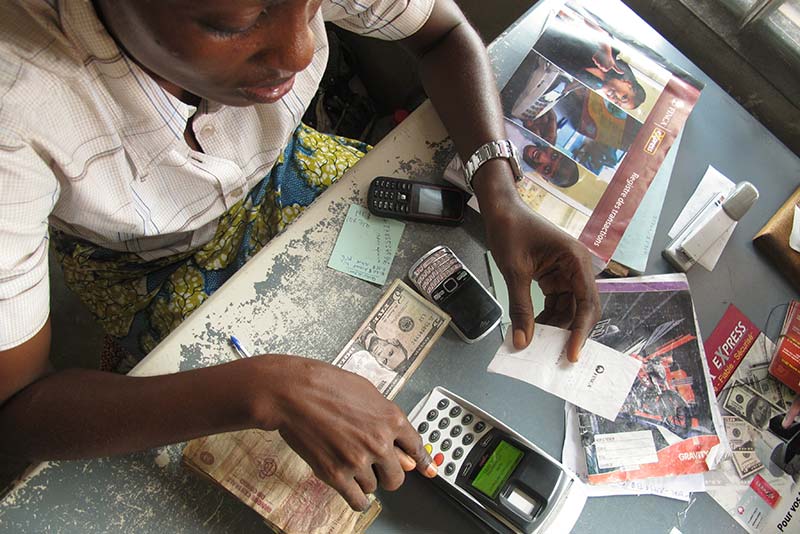By Gavin Thorpe
As the sun set on the Landwasser valley in eastern Switzerland and this year’s World Econonomic Forum (WEF) Annual Meeting in Davos, government, business, and civil society leaders from across the globe headed home to promote the forum’s mandate of bold collective action to address ongoing crises.
A key theme of this year’s program has been the global economic slowdown. Since the outbreak of COVID-19, the world has been buffeted by a series of shocks. The invasion of Ukraine caused food and energy prices to spike, setting off the highest inflation in decades. Meanwhile, climate change continued to inflict a heavy toll. In its latest forecast, the World Bank Group warned that further shocks could tip the world economy into recession.
For low-income countries, which are also struggling under the increased debt burdens accumulated during the pandemic, charting a course through these rough waters will require tough policy choices. For the private sectors within those economies, slowing growth, tightening access to credit and a likely decrease in government support pose a significant challenge.

The congress center in Davos with flags of nations at sunset during the World Economic Forum. Photo: Shutterstock
Rising Rates
From the outset of the pandemic, governments and central banks looked to protect their private sectors through a range of short-term measures, including guaranteeing credit and liquidity. The goal during this time was to help companies avoid bankruptcy and preserve employment whilst broader economic activity was restricted. With the hope that firms could then bounce back once lockdowns had ended and business was able to resume as before.
“Increasing price levels and interest rates are providing a strenuous situation for the private sector to sustain their businesses,” said Jagadish Prasad Bist a faculty member of the British College, Kathmandu, Nepal. This current dynamic is being compounded by a decade-long slowdown in investment growth around the world prior to the pandemic. Growth in investment is critical to making companies more productive, which in turn is essential to driving growth in real wages and household incomes.
Within developing economies, Bist has demonstrated that a reduced access to credit for the private sector has a significant negative impact on a country’s growth and ability to meet development targets, particularly in the arenas of “employment generation, poverty reduction, and improvements in standards of living.”

Slowing growth and a tightening of access to credit will be felt most acutely in the developing world. Photo: Anna Koblanck/IFC
Debt Burden
As economies around the globe begin to open up after the pandemic and look to return to previous levels of growth, the World Bank Group has warned that dozens of developing countries have been left with unsustainable levels of debt which may force the hand of policy makers.
This debt has been forecast by the International Monetary Fund to have increased by around 7.5 percentage points from prepandemic levels. According to the World Bank’s International Debt Report, the world’s poorest countries will be acutely affected by this. With a 35 per cent increase in payment levels from 2021 due on their public debt and nearly 60 percent of low-income countries at high risk of debt distress or already experiencing it.
These “increased liquidity pressures in poor countries go hand in hand with solvency challenges, causing a debt overhang that is unsustainable for dozens of countries,” said World Bank Group President David Malpass in the Report.
Bold Action
Despite the dark economic clouds circling this year’s WEF Meeting, the mandate of bold collective action, which includes fiscal measures to boost investment levels and growth, more robust regulatory frameworks and greater integration between climate policy and development, suggests brighter horizons may lie ahead.
For Makhtar Diop, Managing Director of IFC, this has “the potential to create true win-win scenarios that benefit businesses, nations, and the entire global community.”
“This crisis is an opportunity to change fundamentally and structurally the role of some of the countries in the world economy and to make sure that developing countries are an integral part of the supply chain,” said Diop.
In times of crisis, working toward a brighter future is not without its challenges. Providing sufficient access to capital in the developing world will require sustained effort, new partnerships, and close collaboration between both the public and private sectors.
Published in January 2023
